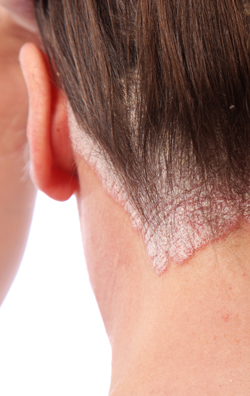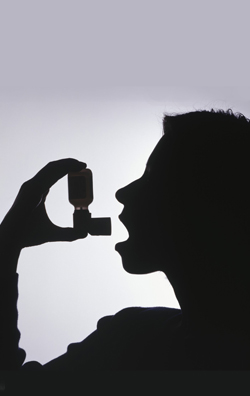
Anorexia nervosa is a type of eating disorder in which the affected person become obsessive about their body weight the type and amount of the food they are consuming. The affected persons restrict their food intake excessively, indulge in inappropriate and inadequate eating habits, become obsessed with maintaining body weight far below the range adequate for respective height and weight and suffer from irrational fear of becoming obese.
Currently anorexia nervosa is thought to be a way to cope with emotional stress. In an affected person the degree of thinness becomes proportional to self worth. Although the condition is quite difficult to treat, however with treatment the affected person gains the lost self confidence and returns to a healthier diet and thus can avoid all the associated complications.
Symptoms
Anorexia nervosa about nine times more common in females. The most common presenting symptoms of anorexia nervosa include excessive weight loss through inappropriate restriction of food intake sometimes even to the point of starvation or through vigorous exercise. One of the most characteristic features is recurrent episodes of purging either by inducing vomiting or diarrhea characteristically following an episode of binge eating
Other than excessive weight loss there are number of characteristic physical, emotional and behavioral symptoms.
Physical symptoms include
1. Extremely thin appearance
2. Increased tiredness, sleeplessness, dizziness even sudden black out
3. Thin hair which easily break or can be pulled out easily
4. Bluish discoloration finger tips
5. Skin becomes dry, loose its normal appearance, soft hair growth all over the body
6. Stoppage of menstruation
7. Fall in blood pressure
8. dehydration
9. Poor tolerance to cold
10. Swelling of limbs due to fluid accumulation and protein deficiency
11. Constipation
12. Thinning of bones (osteoporosis)
Emotional and behavior related symptoms include
1. Denial to be hungry, skipping meals, giving lame excuses to avoid food, always complaining about imaginary weight gain, repeated measuring of body weight, 2. 2. avoiding eating in public places
3. Irrational excessive fear of putting on weight
4. Emotional blunting, social isolation, frustration, increased agitation, depression
5. Loss of libido
Causes
The exact underlying cause of anorexia nervosa is not known, however biological, emotional and psychological factors are thought to play an important role.
Biological factors include genetic susceptibility towards anorexia nervosa, people with obsession towards perfectionism and perseverance, imbalance in brain neurotransmitter like serotonin etc
Psychological factors especially suffering from other psychological disorder like obsessive disorder in young women
Environmental factors: currently the media and society emphasizes thinness in females increasing peer pressure
Common risk factors include
Females
Young people especially teenagers are at risk, this condition are rare after 40 years
Family history
Peer pressure
Media and social pressure
Treatment
There are number of approaches to treat anorexia nervosa, however the most difficult part is to convince the affected person to seek medical attention.
Sometimes for serious complications of anorexia nervosa like disturbed heart rhythm, dehydration, severe electrolyte imbalance hospital admission is essential.
The different treatment options include restoration of healthy body weight with proper diet, psychotherapy like individual, family oriented or group therapy and finally drugs like antidepressants or anxiolytics etc.





